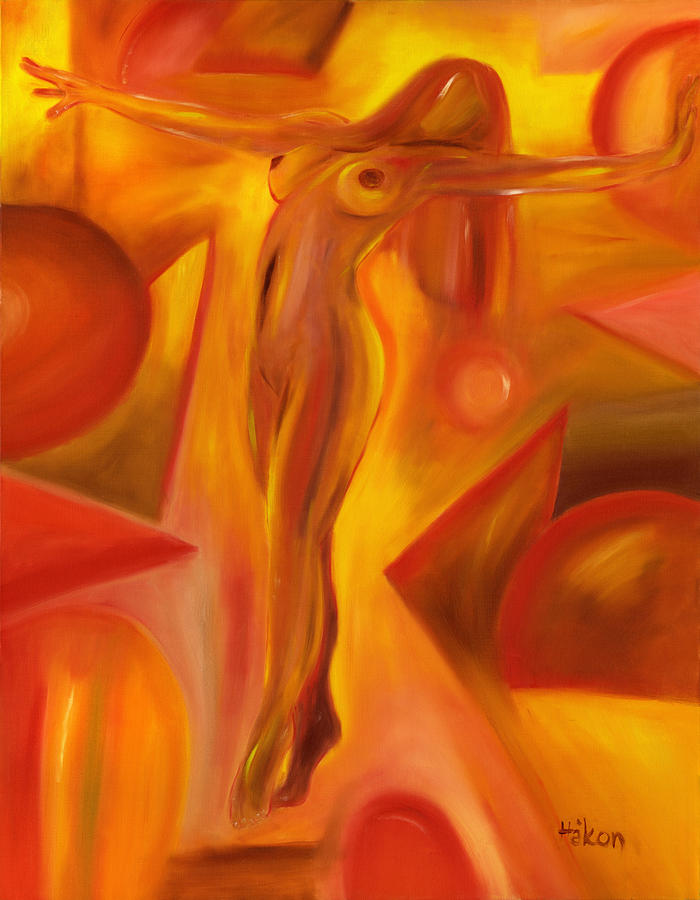As Peter St. Andre puts it:
"...in art, human abstractions are objectified or concretized at the sensory level through the rearrangement of human perceptual impressions into clear, intelligible images. In this way, an aesthetic image performs the same function that a word does in the realm of logic: it reduces or condenses a vast sum of knowledge and information to a single cognitive unit....
...works of art are entities of a special kind: they are sensuous embodiments (as opposed to conceptual explications) of the creator's thoughts and values about certain aspects of reality. The primary purpose of creating a work of art is the objectification or concretization of those abstractions in the form of perceptually available concrete entities (which makes it possible to contemplate or experience those abstractions in concrete reality)....
...Thus the following working definition: "Art is the sensuous embodiment of the creator's thoughts and values about certain aspects of reality, effected by creating a perceptually available concrete entity that is fundamentally similar to but selectively different from actual reality, and created primarily for the purpose of objectifying and therefore being able to contemplatively experience the kind of world the artist fundamentally values."...
...A painting is a sensuous embodiment of a painter's thoughts and values about landscapes, physical objects, animals, or human beings, effected through the use of color on a two-dimensional surface to selectively represent those entities, and created primarily for the purpose of objectifying and contemplatively experiencing the kind of natural or human world the painter fundamentally values....
...A poem is a sensuous embodiment of a poet's thoughts and values concerning external or internal events, effected through metric or highly rhythmic speech patterns that selectively re-create natural human speech or thoughts, and created primarily for the purpose of objectifying and contemplatively experiencing the kind of intellectual and emotional world the poet fundamentally values....
...A dance is a sensuous embodiment of a choreographer's thoughts and values about human emotions, human actions, and the human form, effected through rhythmic movements and other gestures that resemble or selectively re-create natural human movements, and created primarily for the purpose of objectifying and contemplatively experiencing the kind of human world the choreographer fundamentally values..."
In the non-Feminist world, objectification simply means that an object (the definition of which includes persons) is representing, in concrete form, something other than the object itself. Margaret Thatcher was a person who personified (which is a form of objectification) "free-market economy" and "union bashing." Ronald Reagan came to be identified with "Reaganomics", or the idea that cutting taxes could lead to budget surpluses. Adolph Hitler is the personification of supreme evil, but he was also a real person.
In the arts, the artist is objectifying (through the process of sensuous embodiment) his own thoughts and values about certain aspects of reality, so that the beholder (or audience) will have a contemplative experience of the kind of world that the artist values (in Mr. St Andre's opinion), or perhaps a contemplative experience of a different plane of reality or abstraction. An artist might be hired to produce a work (such as an advertisement) that does not necessarily objectify the artist's own fundamental values, but that nevertheless satisfies the client's needs.
Again, objectification in art or literature is not necessarily bad or demeaning. Regardless of what a Feminist might have told you.

No comments:
Post a Comment